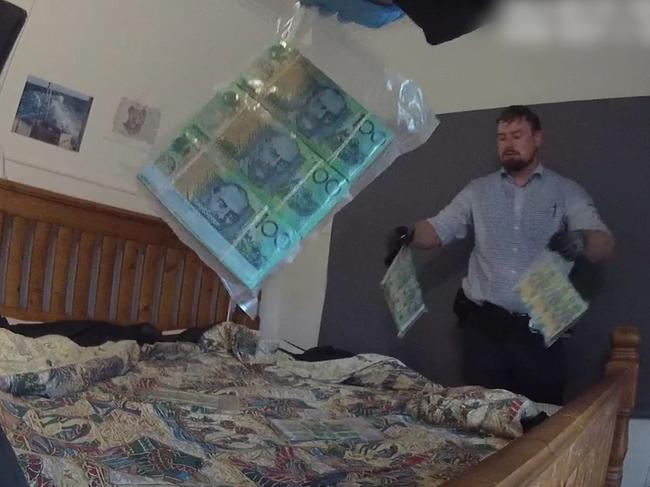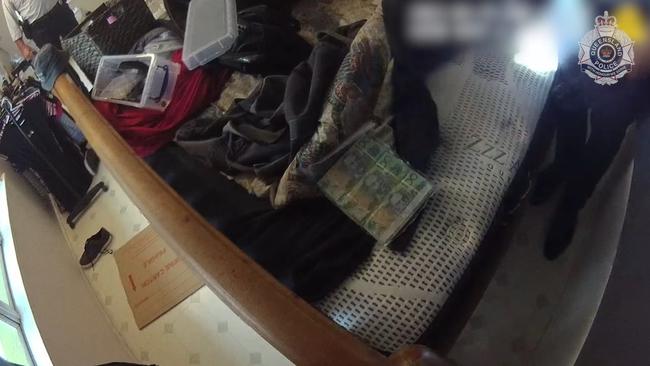Alleged drug trafficker Luke Daniel McKenzie has thousands confiscated
Thousands of dollars found stuffed in a former miner’s mattress during a police raid has been caught up in a law designed to confiscate funds from suspected drug dealers.
Police & Courts
Don't miss out on the headlines from Police & Courts. Followed categories will be added to My News.
An alleged Mackay drug trafficker has had thousands of dollars forfeited under a unique law that forces defendants to prove they got their funds legally.
Police raided Luke Daniel McKenzie’s West Mackay home on April 24, 2021 and found $186,280 of cash in cryovac bags stuffed into his mattress.
The 40 year old and his lawyers had maintained the mattress money was derived from legal sources, but detailed financial documents read out in Mackay Magistrates Court on Wednesday revealed that was not the case.
While various drug trafficking charges were discontinued in a supreme court, McKenzie faced a tainted property charge for the cash as it falls under different rules.

Any defendant accused of a general crime is given the presumption of innocence while the prosecution has the burden of proving guilt.
Yet a law known as the Criminal Proceeds Confiscation Act 2002 burdens accused criminals with proving their innocence.
In McKenzie’s case, it means proving the $186,000 was earned legally either through his former job at Grasstree Mine or his nascent car sale business.
Magistrate Bronwyn Hartigan said for tainted property of that scale “there is no necessity to show a crime with which the property has to be linked”.
“The key here is a reasonable suspicion, and not the actual commission of a serious criminal offence,” Ms Hartigan said.
“The first question is, is the evidence at the time of my decision (producing) a reasonable suspicion that that $186,280 possessed by the defendant … was tainted property?”
The court heard how McKenzie, when questioned about the money during the raid, said it was from wages withdrawn from his bank and the car mechanical business he started after leaving his job at Grasstree Mine.

Ms Hartigan detailed McKenzie’s bank records surrounding the date of the raid, finding that his account was “often overdrawn” with various sums of cash “deposited at various ATMs”.
She further said McKenzie’s final payment from Grasstree Mine in February 2021 had been “eaten up by expenses and gone” by March.
“Because of the defendant’s otherwise poor financial position … I’m satisfied (that) the money found was derived from a confiscation offence(,) likely a drug offence,” Ms Hartigan said.
“In short … no evidence whatsoever has been led by the defendant (that) the money was not tainted property.”
McKenzie was found guilty of possessing tainted property, yet the court disagreed on the scale of his punishment.
Prosecutor Sheena Gravino argued his sentence should be 18 months up to a maximum of two years, whereas defence barrister Alastair McDougall argued for three to six months due to his good behaviour on bail.
Ultimately Ms Hartigan handed down a 12 month sentence with immediate parole, taking into account McKenzie’s 96 days in presentence custody.
Convictions were recorded, and McKenzie’s other matters were adjourned to July 21.




